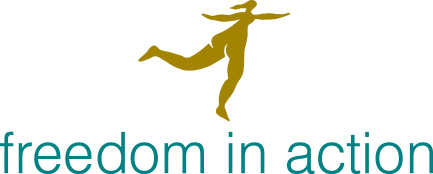A innovative-format Alexander Teacher Training course, approved by the Australian Society of Teachers of the Alexander Technique (AuSTAT), leading to an international qualification:
Innovative training structure involving fewer face to face hours
Combination of face-to-face and off-premises hours over around 3 years
Exposure to the best of Australian and overseas teacher trainers
Unparalleled learning environment
Highly structured syllabus with carefully graduated progressions
High Trainer:Trainee ratio – more individual attention
On-going training/mentoring for graduates

Our goal is to train teachers to have a deep practical understanding of Alexander’s principles, which they can then apply in an infinite number of ways to any situation. We ask our trainees to look for the underlying practical meaning behind Alexander’s words and behind the various “traditional procedures” that Alexander developed. We keep asking the question “why?”, while continuing to relate the work to real life.
Canberra Alexander Teacher Training is innovative, yet firmly rooted in a “traditional” approach, with consistent daily content designed to progressively build a solid skill base for our trainees, in a way that we believe is unique in Australia. We embody an approach that relates to our lived experience; experience of applying the Alexander Technique to our own living and learning: relating to people, interacting with our daily environment, engaging in our daily activities.

Virtually no research has been done anywhere in the world into how to train teachers of the Alexander Technique. Training has generally been done in a way that evolved more or less arbitrarily in the 60’s. Standing on the shoulders of our teachers and mentors, we take a different approach to structure and content. Additionally, we are interested in analysing and refining our training process. Thus we log everything, to provide the start of some deeper understanding of what is important. Our program has 2 key differences to the regular structure:
- We are more interested in competency than in hours. While we expect the conventional 1600 hours over three years is in the ballpark for most trainees, we are not committed to this.
Face to face hours are 7.5 per week over 3 days, plus attendance at extra workshops.
2. Importantly in addition, students are expected to complete a minimum of 6 hours weekly of formal logged practice away from school, of a broad but closely specified list of practice directed activities. In the third year face-to-face hours increase with the additional requirements of giving practice lessons or workshops under supervision.

One-on-one training time exceeds that in a time-based training, courtesy of the high teacher:student ratio (at least double what the rules say – 1:5) and our trainers are among the most experienced teachers in Australia.
As noted above, we have made a departure from the usual structure by “outsourcing” the hours spent on a bigger course working on yourself without supervision – hence lower face-to-face hours.
The Head of Training, Assistant Head and Moderator have between them over 100 years’ teaching experience, including of the training of teachers.
Despite the innovations of our model of training, we consider ourselves to be conservative when it comes to skills, training process and the assessment of trainees’ abilities.
Our first group of trainees completed their formal training in July 2019. We are taking a break from training (but not from general teaching, teacher CPD and mentoring) and will start again with a new trainee intake in late 2020 or early 2021.
Trainees don’t necessarily have to live in Canberra (although it’s a great place to live!). You would need to spend 2 nights a week around Canberra, when school is in.
Embarking on a three-year program is a major commitment on both sides. Having some one-on-one lessons with us, sitting in on our current classes or participating in an intensive would be a good “toe in the water”. Look out for the immersion week at the beginning of October 2020.
Please get in touch!
School runs 9.30 – 12.00, Tuesdays, Wednesdays and Thursdays.
First Year:
- Intensive Alexander Technique work for yourself – deepening the basics
Developmental approach to basic principles- Alexander primary and secondary literature
- Different Alexander lineages
- Anatomy and Physiology
- Reflective learning
- Written assignments
Second Year:
- Continuing intensive AT work for trainees
- Using your hands – still deepening the basics
- Pedagogical considerations
- Alexander primary and secondary literature
- Use of language
- Reflective learning
- Written assignments
Third Year:
- Continuing intensive AT work for trainees
- Teaching/learning skills
- Communication skills, use of language
- Running your own practice
- Supervised practice lessons and workshops
- Alexander primary and secondary literature
- Reflective learning
- Written assignments
Year-One Detailed Report
This report provides a detailed analysis of the content and process of first-year training.
Year-Two Detailed Report
This report provides a detailed analysis of the content and process of second-year training.
Year-Three Detailed Report
This report provides a detailed analysis of the content and process of third-year training.

